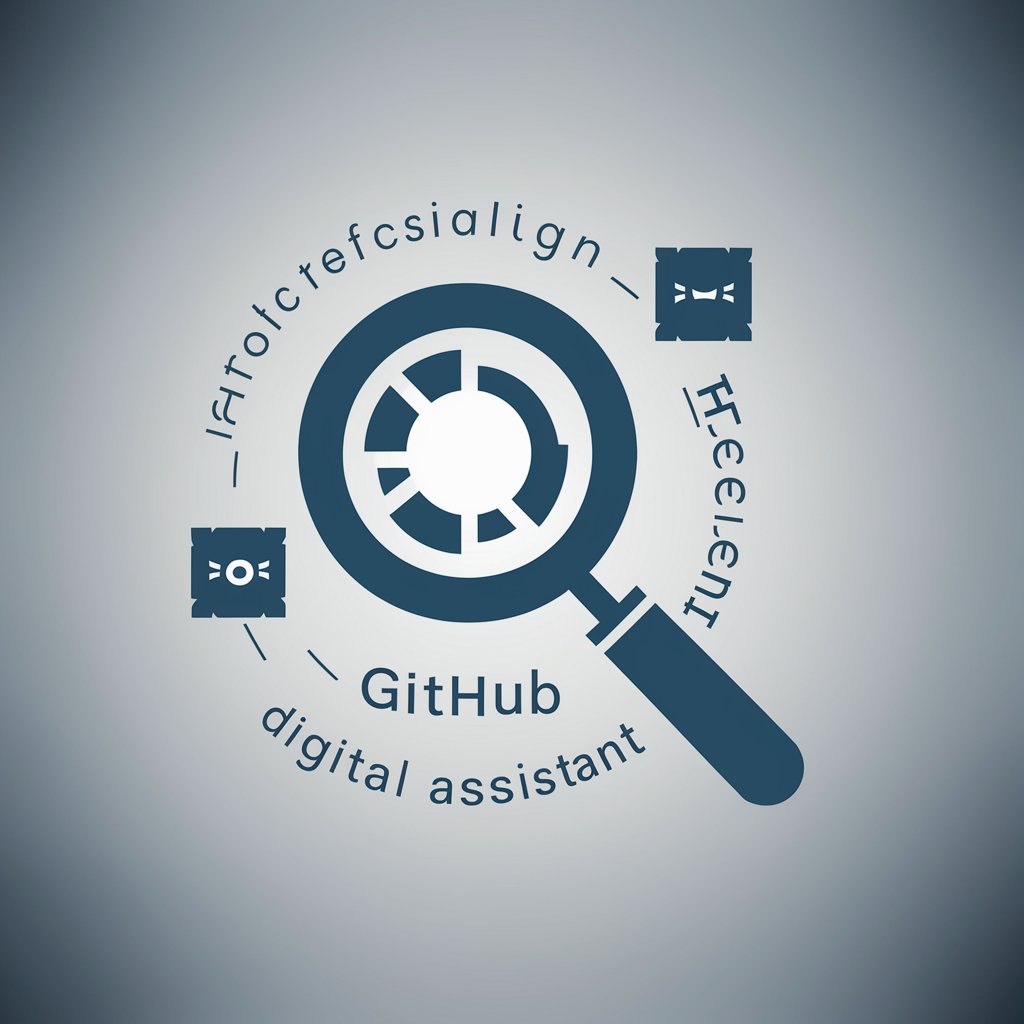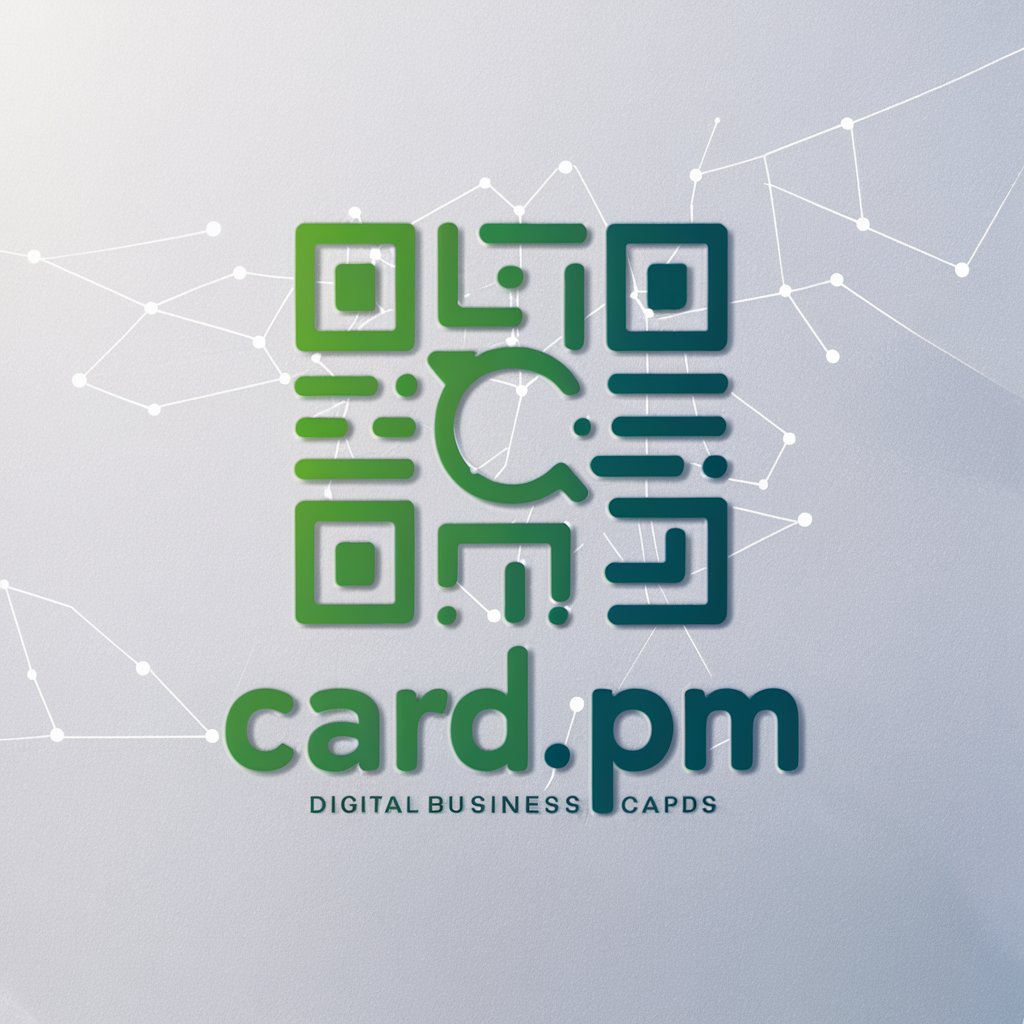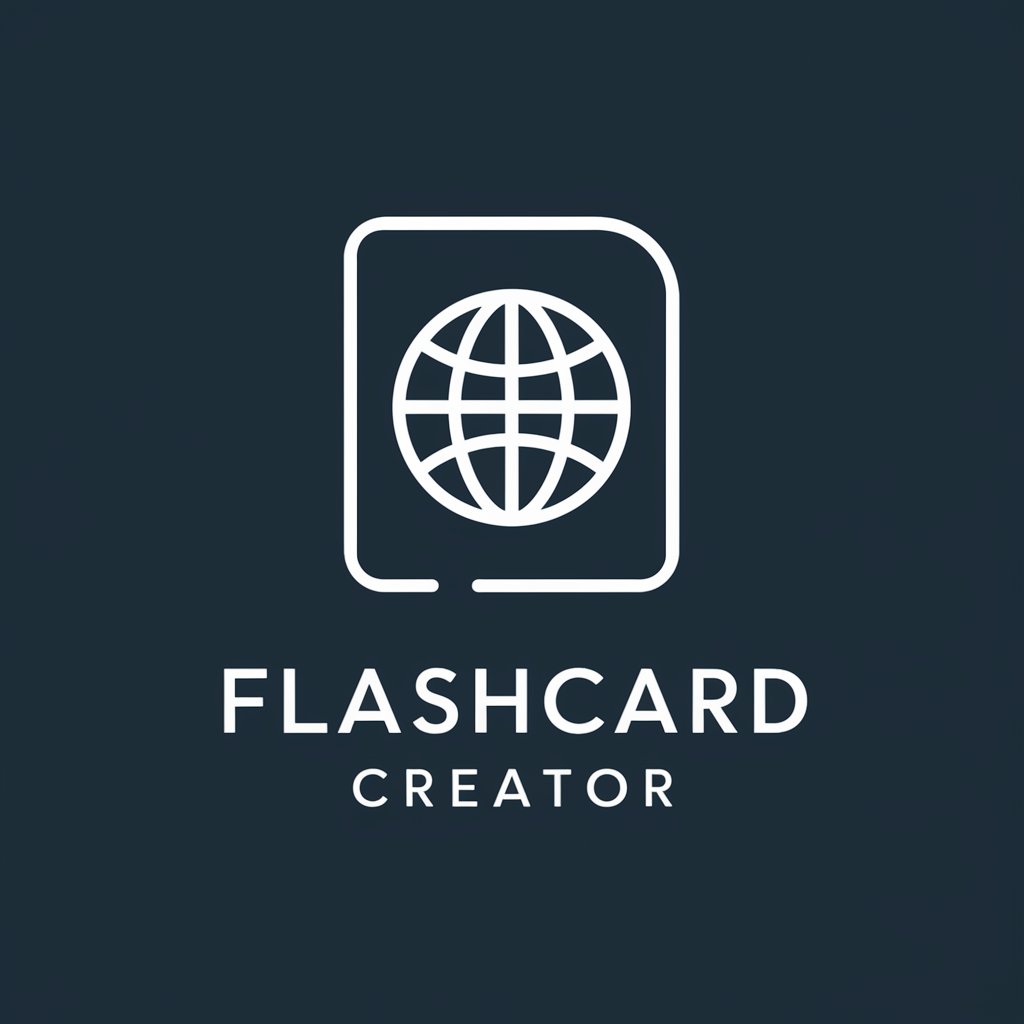
Repo Card - GitHub Repo Analysis
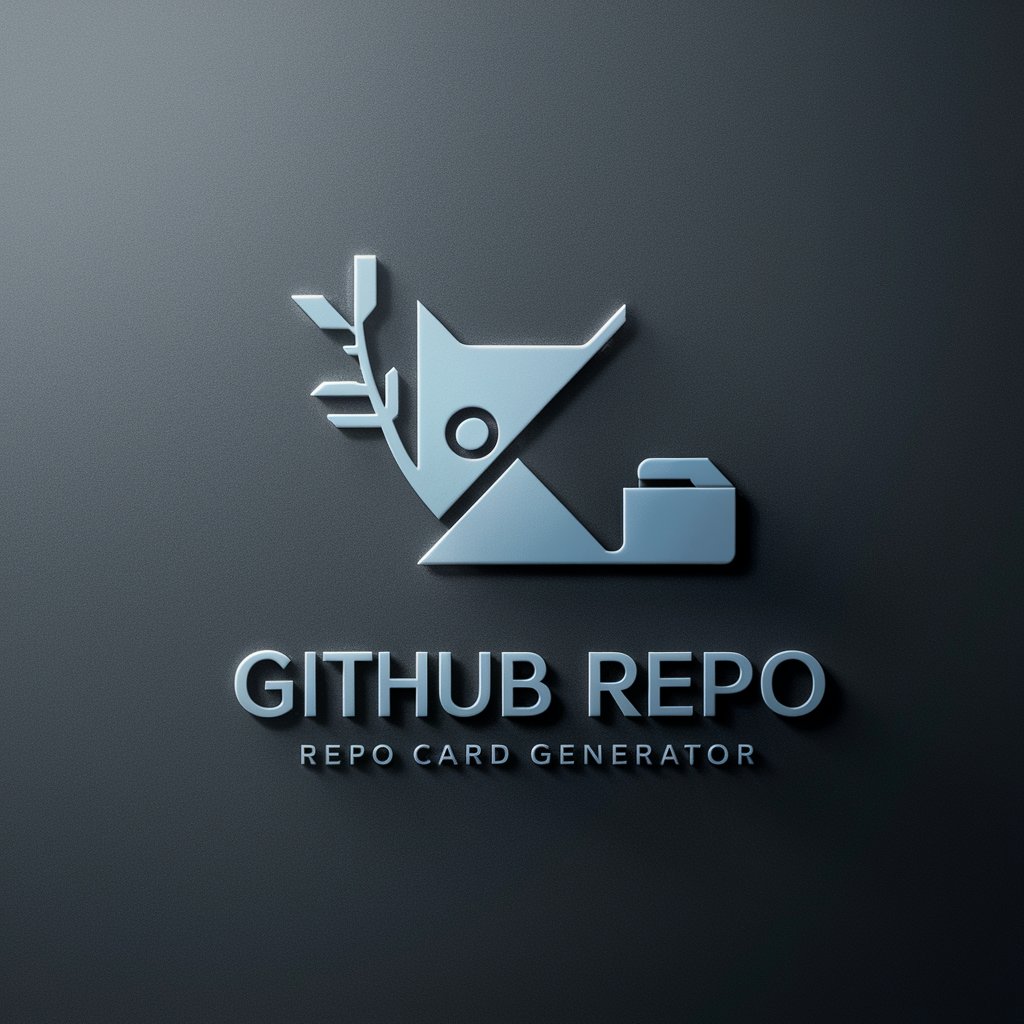
Welcome! Ready to generate your GitHub repo card?
Visualizing GitHub Insights with AI
Generate a GitHub repo card with keywords extracted from the link...
Create a 1024 x 512 pixels plain text image presenting a keyword list...
Extract and filter important keywords from a GitHub repo link...
Produce a modern, minimalist GitHub repo card featuring key repository details...
Get Embed Code
Understanding Repo Card
Repo Card is a specialized tool designed to create visual summaries of GitHub repositories, transforming complex repository details into an easily digestible, plain text image format. Its primary design purpose is to aid in the quick evaluation and sharing of GitHub project information. By extracting and highlighting key information from a repository, such as the project's name, description, programming languages used, and other vital statistics, Repo Card serves as a concise visual reference. For example, imagine a scenario where developers are participating in a hackathon and want to quickly share their project's essence with others without overwhelming them with the entire GitHub page. Repo Cards can encapsulate the project's core details in a single image, making it easier for others to understand what the project is about at a glance. Powered by ChatGPT-4o。

Core Functions of Repo Card
Keyword Extraction
Example
From a link like 'https://github.com/sourceduty/Search_Multiplier', Repo Card extracts keywords such as 'sourceduty', 'Search', and 'Multiplier'.
Scenario
When a developer wishes to present their project in forums or social media, using a Repo Card with extracted keywords can quickly inform the audience about the project's nature and focus.
Creating Visual Summaries
Example
Using the extracted keywords, Repo Card generates a 1024x512 pixel image that visually summarizes the GitHub repository.
Scenario
For project documentation or presentations, where visual aids are necessary to highlight the project's key components without delving into code or GitHub metrics.
Who Benefits from Repo Card?
Developers and Programmers
This group benefits from Repo Card by being able to quickly share and present their projects' key information, enhancing visibility and collaboration opportunities. It's particularly useful for those looking to showcase their work in a concise format during presentations, job interviews, or networking events.
Project Managers and Team Leads
These individuals can use Repo Cards to quickly get an overview of various projects their team is working on or to present project statuses in meetings. It aids in simplifying complex information and making it accessible to stakeholders who might not be deeply technical.
Educators and Students
In educational settings, Repo Cards can be used to introduce projects or repositories as study materials or for project assignments, making it easier for students to grasp the essence of a repository without getting bogged down in details.

How to Use Repo Card
Start Your Journey
Initiate your experience by visiting yeschat.ai for a complimentary trial, accessible without the necessity for login or a ChatGPT Plus subscription.
Upload GitHub Link
Provide the GitHub repository link you wish to analyze. Repo Card is designed to extract and highlight key information from GitHub repositories.
Review Keyword List
Examine the generated keyword list, which distills the essence of the repository. This feature helps in understanding the primary focus and technologies of the repository at a glance.
Generate Repo Card
Utilize the provided template to create a visual Repo Card. This card visually represents the extracted keywords and key information from the GitHub repository.
Explore and Apply
Leverage the Repo Card for various purposes such as academic research, project inspiration, technology overview, or collaboration opportunities. It's a versatile tool for educators, developers, and researchers alike.
Try other advanced and practical GPTs
Humanize AI text
Empowering Conversations with AI Intelligence
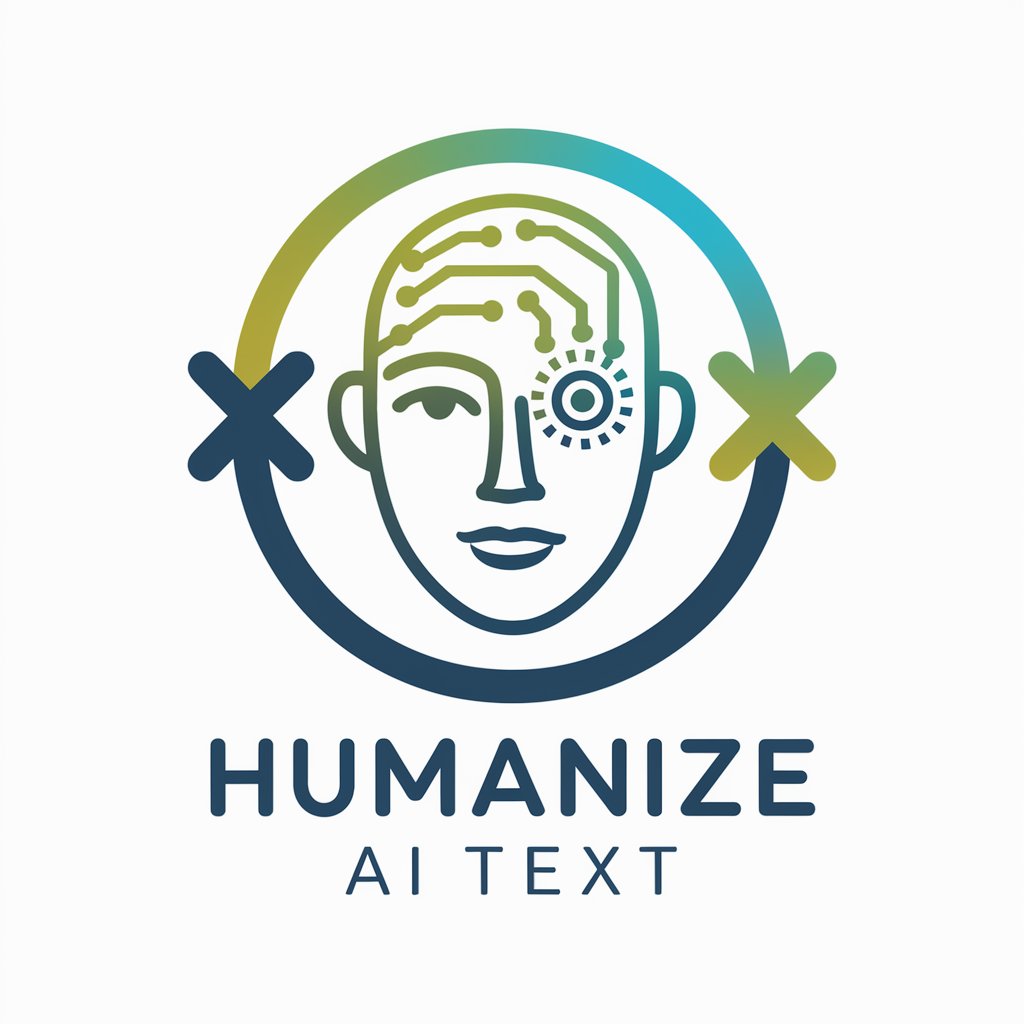
Emulated Image
Revolutionizing Images with AI-Powered Style Emulation

Custom Bouquet Designer
Crafting Artistic Bouquets with AI

Healing Hidden Wounds: PTSD Recovery
Empowering PTSD recovery with AI support

Maya
Elevate Your Photos with AI-Powered Editing

Photoshop Expert
AI-powered Photoshop assistance at your fingertips.

Shader Expert
Elevate Your Graphics with AI-Powered Shader Expertise

Concise Writer
Streamline your message with AI power

SophiaBot_ai
Enlighten Your Path with AI Wisdom

ICU Insight
AI-powered ICU patient monitoring

ZENART
Crafting Futuristic Visions with AI
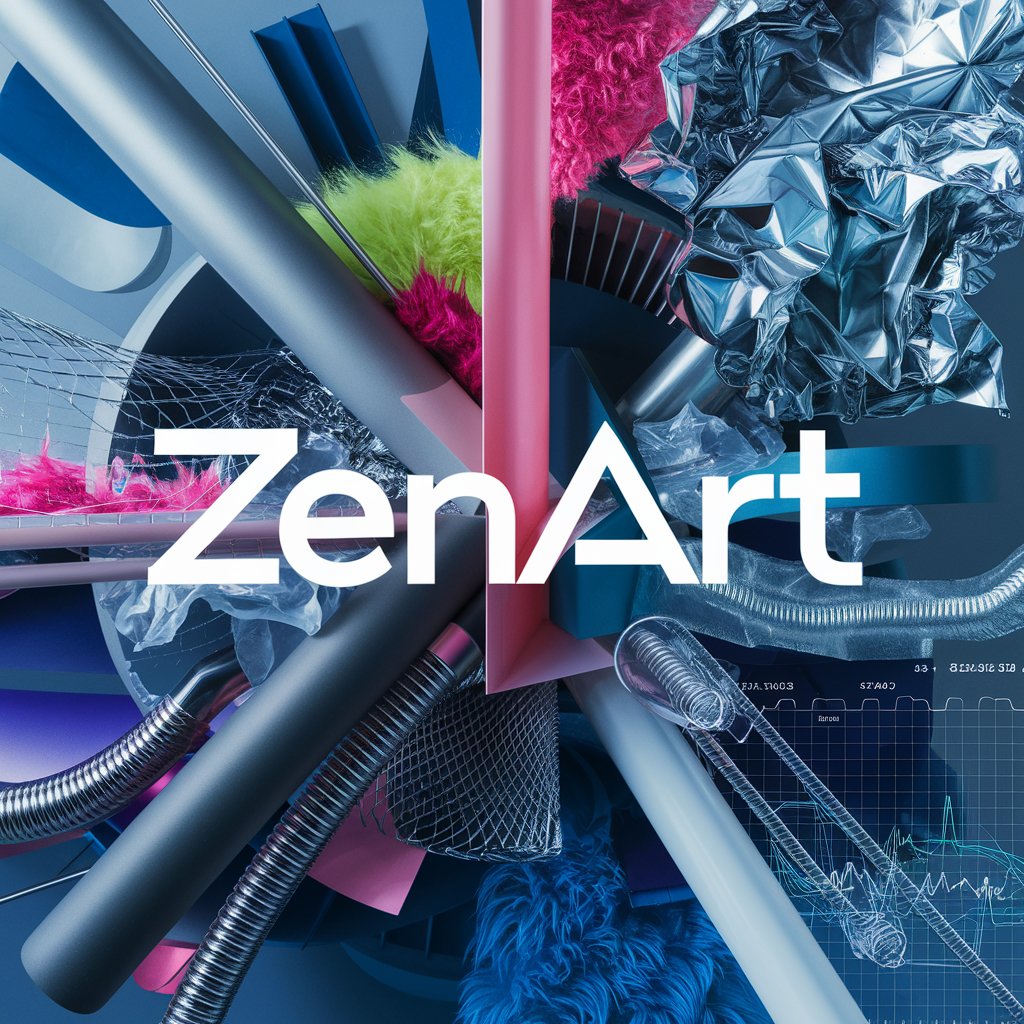
AI Assisted Hub
Empowering Inquiries with AI Intelligence

Repo Card FAQs
What is Repo Card primarily used for?
Repo Card is designed to simplify the exploration and analysis of GitHub repositories by extracting crucial keywords and generating a visual representation. It's ideal for gaining quick insights into a project's technologies and focus areas.
Can Repo Card be used for private repositories?
Currently, Repo Card is optimized for public repositories. Its functionality relies on accessible GitHub links to analyze and extract data without the need for repository access permissions.
How does Repo Card extract keywords?
Repo Card uses an AI-driven analysis to sift through a repository's content, including README files and code comments, to identify and prioritize keywords that best represent the project's scope and technologies.
Is there any cost associated with using Repo Card?
Repo Card offers a free trial accessible via yeschat.ai, allowing users to explore its features without the need for a subscription or login, making it easily accessible for all users.
How can Repo Card benefit academic research?
Academics and researchers can use Repo Card to quickly identify relevant projects, technologies, and concepts within their field of study, facilitating literature reviews and technology trend analysis.
